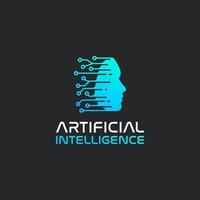Artificial Intelligence (AI).
refers to the development of computer systems that can perform tasks that typically require human intelligence. It involves the creation of algorithms and models that enable machines to learn from data, recognize patterns, make decisions, and solve complex problems. AI technology utilizes various techniques, such as machine learning, natural language processing, and computer vision, to mimic human cognitive abilities. With its ability to process vast amounts of information quickly and accurately, AI has the potential to revolutionize numerous industries, including healthcare, finance, transportation, and more. By continuously advancing and evolving, AI aims to enhance efficiency, productivity, and decision-making processes in various domains.
Pros:
1. Efficiency and Automation: AI can automate repetitive tasks, leading to increased efficiency and productivity.
2. Improved Accuracy: AI systems can process large amounts of data quickly and accurately, reducing human errors.
3. Enhanced Decision Making: AI algorithms can analyze complex data and provide insights to support decision-making processes.
4. Personalization: AI can personalize user experiences by analyzing preferences and behavior patterns.
5. Innovation and Advancements: AI drives innovation by enabling the development of new technologies and solutions.
Cons:
1. Job Displacement: AI automation may lead to job losses in certain industries, requiring workers to adapt to new roles.
2. Ethical Concerns: AI raises ethical questions regarding privacy, bias, and the potential misuse of technology.
3. Lack of Human Judgment: AI systems lack human intuition and may struggle with complex decision-making requiring emotional intelligence.
4. Dependence on Data: AI heavily relies on quality data, and biases or inaccuracies in the data can lead to biased or flawed outcomes.
5. Security Risks: AI systems can be vulnerable to cyberattacks, posing risks to sensitive data and privacy.
Alternative of human brain
Artificial intelligence (AI) does not have the capability to take over or control the human mind. AI systems are designed to perform specific tasks and functions based on programmed algorithms and data analysis. While AI can mimic certain aspects of human intelligence, such as pattern recognition and decision-making, it does not possess consciousness, emotions, or the ability to control human thoughts or actions.
AI technology is developed and used to assist humans in various domains,
such as healthcare, finance, and transportation, by providing insights, automating tasks, and enhancing efficiency. The goal of AI is to augment human capabilities, not to replace or control them.
It is important to approach AI development and deployment with ethical considerations, ensuring transparency, accountability, and safeguards against potential risks. The responsibility for decision-making and critical thinking still lies with humans, who remain in control of how AI is used and integrated into various aspects of society.
Artificial intelligence how it works
Artificial Intelligence (AI) works by utilizing algorithms and models to process data, learn from patterns, and make decisions or predictions. The process typically involves the following steps:
Data Collection: AI systems require large amounts of data to learn from. This data can be structured (organized) artificial intelligence #AI
Artificial intelligence AI




You must be logged in to post a comment.